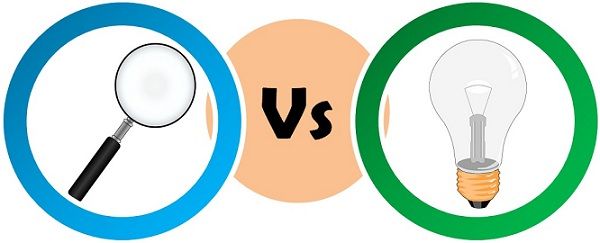 Each and everything that surrounds us and we are using in our day to day life is either discovered or invented, by experts. Most people have a misconception regarding the words discovery and invention, due to which they end up with the supposition that these two are one and the same thing. But that is not true, as discovery means uncovering something, which already existed, but not recognised by anybody else before, i.e. finding something unexpected.
Each and everything that surrounds us and we are using in our day to day life is either discovered or invented, by experts. Most people have a misconception regarding the words discovery and invention, due to which they end up with the supposition that these two are one and the same thing. But that is not true, as discovery means uncovering something, which already existed, but not recognised by anybody else before, i.e. finding something unexpected.
On the other hand, the invention refers to creating something new and useful, with one’s ideas and experiments. In short, it means creating or designing something. So, check out this article to know the difference between discovery and invention in detail.
Content: Discovery Vs Invention
Comparison Chart
| Basis for Comparison | Discovery | Invention |
|---|---|---|
| Meaning | Discovery refers to the act of finding or exploring something which already existed but not perceived before. | Invention is creation or designing of an item or a process which has never been existed before, with own ideas and developments. |
| What is it? | Coming upon something, which is not yet acknowledged. | Developing something original and advanced. |
| Represents | Natural occurences | Scientific or human-made artifacts, devices, processes |
| Involves | Exploration | Experimentation |
| Subject | Discovered on purposely or accidentally. | Conceived on purposely. |
| Existence | Pre-existent | Non-existent |
| Patent | No, it cannot be patented. | Can be patented. |
Definition of Discovery
The term discovery denotes the act of detecting or uncovering something for the very first time, which is already there in the world, but was not recognised previously as relevant. It is the scrutiny of new events, actions, phenomena or reasoning. The discovery relies on ideas, collaborations or even former discoveries.
Questioning and curiosity have an important role to play in discovery, as it leads to the discovery of things, which was not acknowledged earlier, which in turn results in the invention of processes, products and methods. There are some important discoveries, which came out as profound development in knowledge and technology.
Definition of Invention
An invention can be understood as a novel and non-obvious method, device, process, improvement or technique. An idea of creating something new or advanced, so as to make the work of people easier and faster, when turned out into reality it is an invention. In a nutshell, the invention is something that did not prevail before and is acknowledged as the outcome of some unique intellect.
Sometimes an individual works on an idea alone for its embodiment, while sometimes a group of scientist work together to invent something useful. It can also be a developed by a person, on which other persons make additions or improve it further. It plays a crucial role, in transforming the way people do their work.
Key Differences Between Discovery and Invention
The following points are substantial, so far as the difference between discovery and invention is concerned:
- The act of searching and exploring something which already existed but was never recognised is known as discovery. On the other hand, the creation or designing of an item or a process which has never been existed before, with own ideas and developments is known as an invention.
- Discovery connotes coming upon something, which is not yet acknowledged. As against this, invention implies developing something original and advanced.
- Discovery is an outcome of natural occurrences. Conversely, an invention is scientific or human-made artefacts, devices, processes.
- While discovery involves exploration, the invention encompasses experimentation.
- The discovery of subject is either performed on purposely or accidently, whereas, in the case of the invention, the subject is conceived on purposely.
- Discovery applies to those, which existed since a long time. On the contrary, the invention applies to the things which never existed.
- The patent applies to inventions only, but not to discoveries.
Example
Discovery
- Discovery of America by Columbus.
- Discovery of gravity by Isaac Newton.
- Discovery of plant cell by Robert Hooke.
Invention
- Invention of the telephone by Graham Bell
- Invention of the light-bulb by Thomas Alva Edison.
- Invention of the computer by Charles Babbage
Conclusion
In the end, the discoveries and inventions are the major cause of change in the world as they transform the way people live, work, eat, connect, etc. These are closely associated with each other, in essence, the invention can be a result of the integration of things which are previously discovered, in the like manner, inventions can prove helpful in discovering the undiscovered.






F4r94 says
This is the best website i have ever seen
THANK YOU!!!
Francisco Belchior says
This website is really good. It is helping me a lot to develop my English vocabulary and still learn new things. Wonderful. Congratulations. Keep it up.
Dr. S.N.Selvaraj says
This website is very good and useful to refer many things regarding discovery, invention, innovation…
Thanking you… Keep it up…